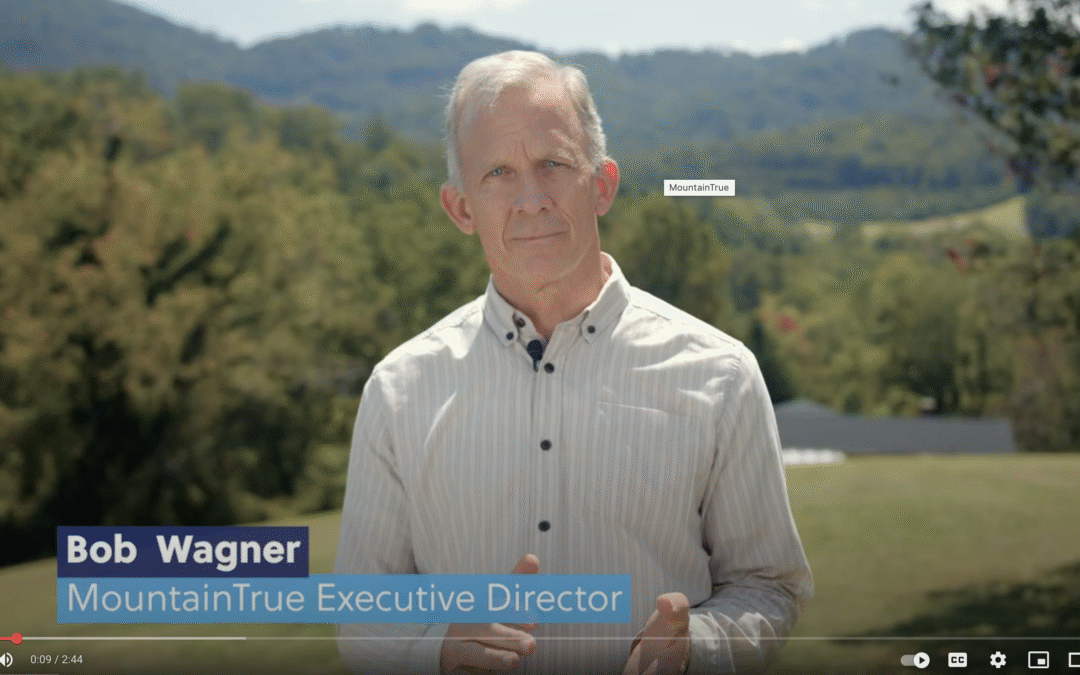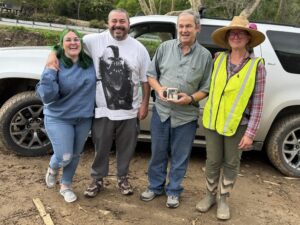
MountainTrue’s 2025 Volunteer of the Year & Esther Cunningham Awards
MountainTrue’s 2025 Volunteer of the Year & Esther Cunningham Awards
Every year, MountainTrue recognizes five individuals from across the Southern Blue Ridge as our regional Volunteer of the Year and Esther Cunningham award winners. We celebrated these exceptional MountainTrue volunteers at our 2025 Annual Member Gathering – Stronger Than the Storm – on Thursday, October 2, at Asheville Yards in Asheville, NC.
MountainTrue’s regional Volunteer of the Year Award winners include:
High Country Region: Hope Thingelstad

For Hope Thingelstad, Western North Carolina isn’t just a place to live —it’s a passion. While she professionally promotes the area as a tourism destination for the Watauga County TDA, her love for the region extends far beyond her work. A graduate of Appalachian State University’s Sustainable Development program, Hope is a familiar face on local trails, often hiking with her dog, hitting the disc golf course, or finding a peaceful spot by the river to read. She also has a deep appreciation for the area’s rich live music and arts culture. Hope is committed to helping others discover and care for the same beautiful environment and creative community that she cherishes.
Central Region: Eric Wolf
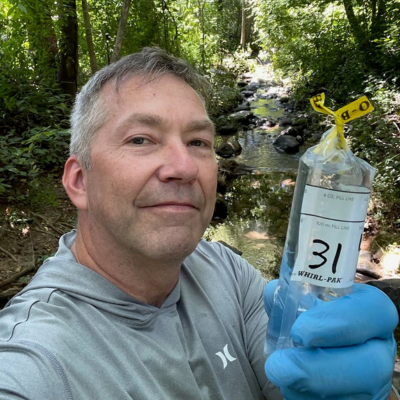
Eric Wolf has been a steadfast ally to the French Broad Riverkeeper team, rolling up his sleeves to protect our rivers time and time again. He’s hauled out countless pounds of debris, collected multiple rounds of water samples, and never shied away from the hard work it takes to safeguard clean water. His dedication has been a true force in supporting MountainTrue’s mission.
Western Region: David Best
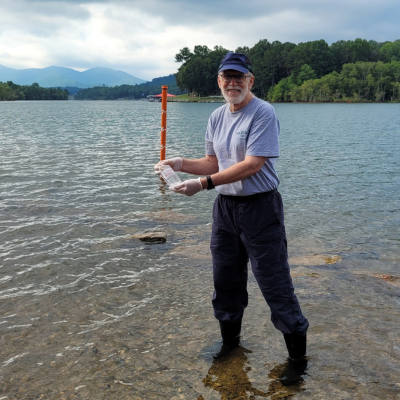
David has been a monthly Adopt-A-Stream volunteer for 13 years, and he is also a weekly Swim Guide volunteer in the summer. He serves on MountainTrue’s Hiwassee Watershed Advisory Council and has been a critical liaison with the Towns County Civic Association. In his capacity on that board, he attends planning board meetings and has been super helpful in keeping MountainTrue’s Western Region staff aware of what’s happening in Towns County, Georgia. Recently, David also helped spread our message by presenting about MountainTrue’s work to a local organization. He’s a true ambassador for MountainTrue!
Southern Region: David Rikard
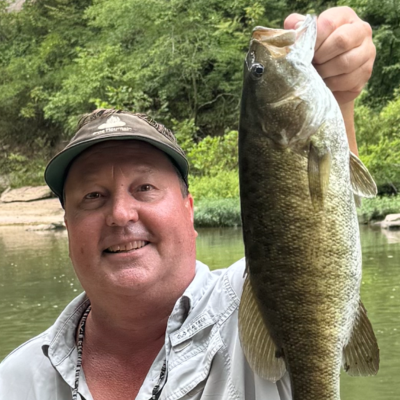
David was born and raised in Western North Carolina. David, his wife Carol, and their kids, Josie and Grady, love the outdoors. They especially enjoy floating the river, camping, and counting how many blue herons they see on their river adventures. David’s favorite pastime is fishing for smallmouth bass. He’s a dedicated volunteer who cares deeply for clean water.
2025 Esther Cunningham Award Winner: Katherine Taaffe
This award is given each year in honor of one of our organization’s founders, Esther Cunningham. In many ways, Esther was an ordinary person – born and raised in Macon County, a mother and a grandmother, a teacher, a beauty shop owner, and an active community volunteer. Then one day she learned about plans the Forest Service had to explore for oil and gas in her beloved mountains, which prompted her to become a full-time crusader for her mountains and the larger environment. From then on, she bravely stood up, rallied her community, and tirelessly fought to protect and defend the forests of Western North Carolina. All of us here today represent her legacy.
So we give this award to people who have fought the fight, often dedicating their lives to these battles, who win some, lose some, but always keep fighting.
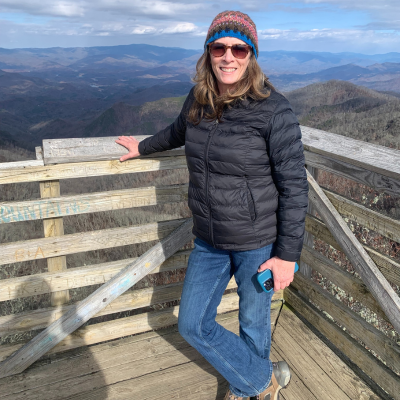
This year’s recipient, Katherine Taaffe, has been involved with the Hiwassee River Watershed Coalition and MountainTrue for the past 15 years. She served on the Coalition board of directors for five years, then on the merger team, and since 2019, she’s served on both the MountainTrue Board of Directors and the Hiwassee Watershed Advisory Council. She has served as the MountainTrue Board Treasurer for two years. She is also part of our volunteer monthly water quality monitoring program. But beyond these formal credentials, she is a passionate advocate for the environment across all of MountainTrue’s program areas! In addition to her water quality work, she’s also written letters to the editor on forest planning topics, and is looking into developing workforce housing on her property in Murphy. And, she talks to many of her dog grooming customers about our work. She is truly a champion and ambassador for MountainTrue.






